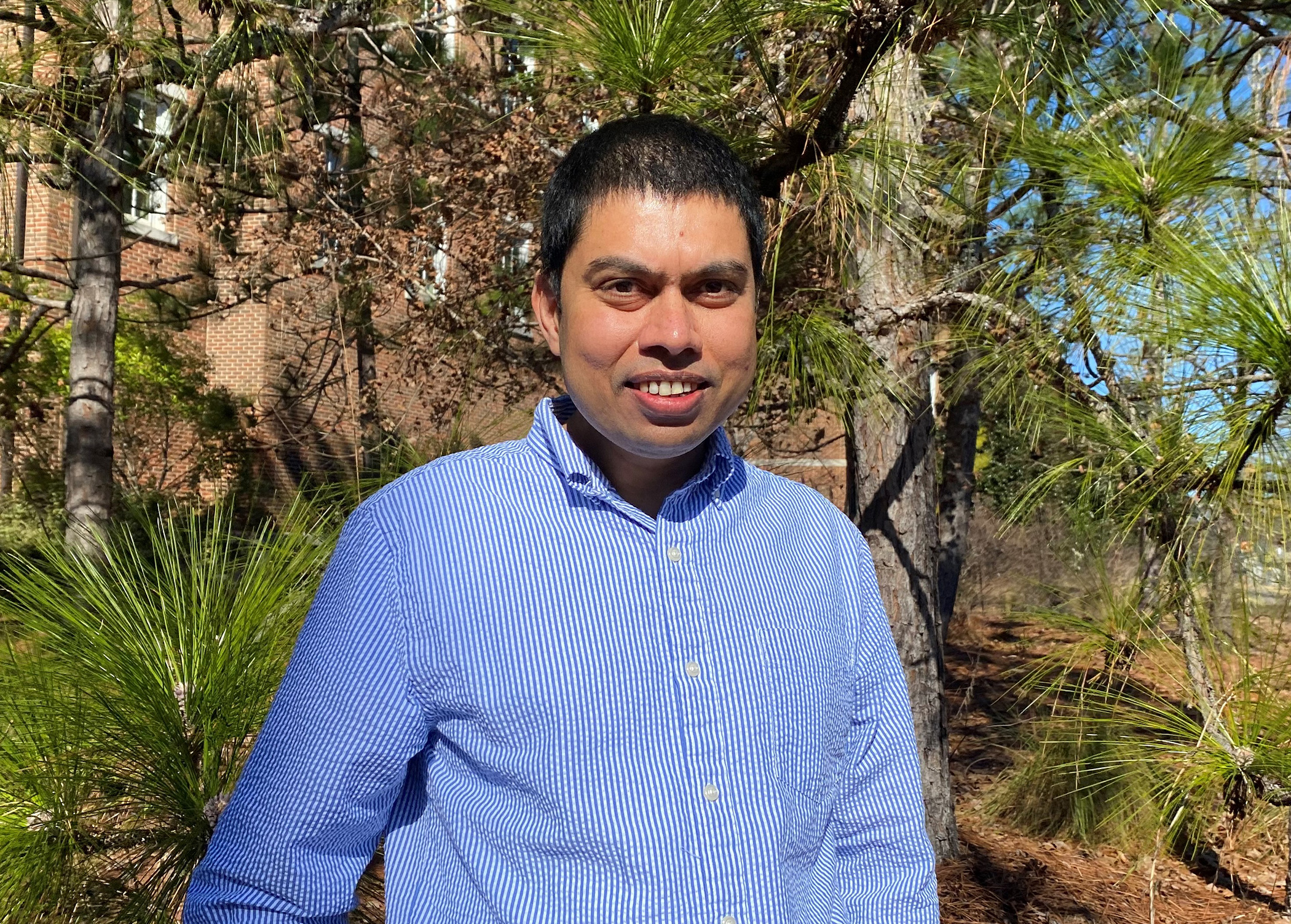Sanjiv Kumar, an assistant professor in Auburn University’s School of Forestry and Wildlife Sciences, has been selected to serve a four-year term on the Predictability, Predictions and Applications Interface, or PPAI, Panel of the U.S. Climate Variability and Predictability Program.
Kumar’s duties will include advising the U.S. Climate Variability and Predictability, or CLIVAR, Program on research priorities, gaps and milestones to advance ocean and climate predictions and projections; advocating for new funding opportunities; and national and international activities to advance in research and liaising with other U.S. CLIVAR panels.
Kumar specializes in understanding long-memory land processes; investigating the role of regional climate variability and change, vegetation interactions, land-use change and direct human interventions; and developing a real-time adaptive deep learning model to improve the soil moisture forecast skill at the field scale.
“My research seeks to improve water cycle predictions and projections through multidisciplinary collaborations, training of the next-generation geoscience workforce and diversity and inclusion,” said Kumar.
John Nielsen-Gammon and Haiyan Teng, U.S. CLIVAR PPAI Panel co-chairs, are excited about the expertise Kumar will bring to the panel regarding hydroclimate predictability on seasonal to decadal time scales.
“The Science Steering Committee expects that with the help of researchers like Kumar, the U.S. CLIVAR Program will continue to influence and facilitate the development of important climate research efforts in the U.S.,” said Nielsen-Gammon and Teng.
Kumar’s experience includes building multidisciplinary collaborations to understand the role of land processes in the coupled climate system that contributed to a new land initialization in seasonal to multiyear large ensemble forecasts by the U.S. National Center for Atmospheric Research.
“Kumar’s expertise will bring a diverse perspective to the U.S. CLIVAR Program,” said Janaki Alavalapati, dean of the School of Forestry and Wildlife Sciences. “His research has investigated the roles of soil moisture processes and land-climate interactions on hydroclimate variability and predictability.”
Kumar also plays a lead role in the development and teaching of Auburn’s Geospatial and Environmental Informatics undergraduate degree and the multidisciplinary Earth System Science, or ESS, doctorate program.
“My mentorship has helped students reach their maximum potential and retain the best minds in the geoscience workforce,” said Kumar.
He plans to attend the U.S. CLIVAR Summit to be held March 14-16 in Washington, D.C.
“Kumar’s selection to the U.S. CLIVAR panel is one of the many examples that demonstrates the contributions of Auburn’s innovative research programs are consistent with its R1 Carnegie designation,” said Alavalapati.
An R1 designation by the Carnegie Classification of Institutions of Higher Education is reserved for doctoral universities with the highest levels of research activity.
(Written by Gracen Carter)










